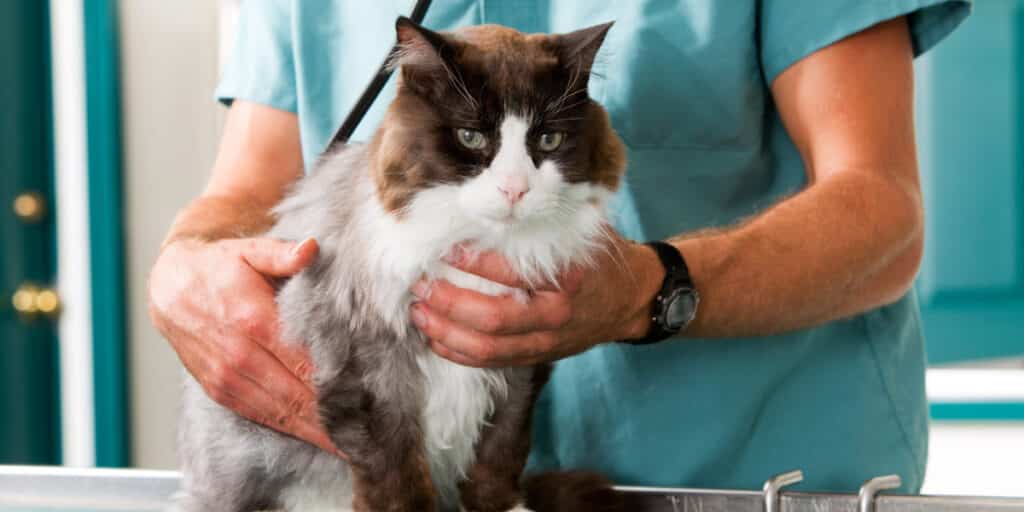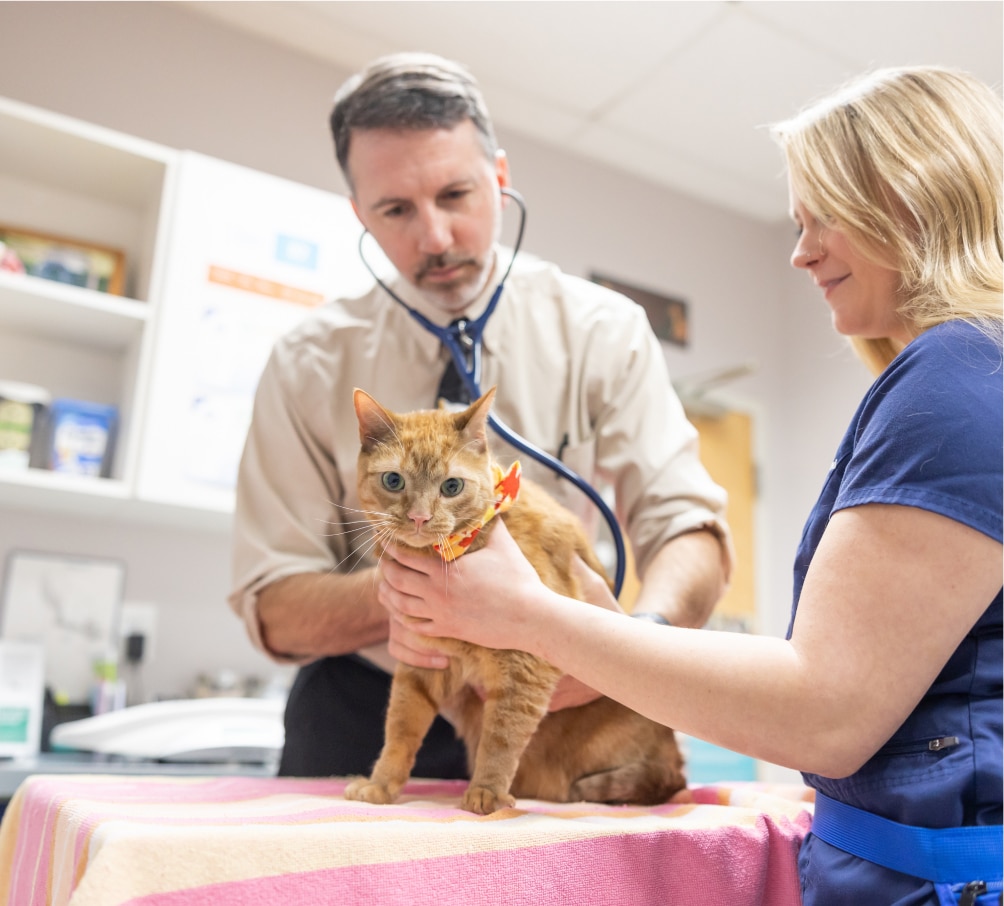You may think that you only need to bring your pet to the vet for shots or when they are ill, but an annual wellness exam is key to keeping your cat or dog healthy, happy, and thriving!
An annual wellness exam promotes overall health and well-being, and helps you to catch potential illnesses before they become chronic problems, or worse.
How Often Should I Schedule a Wellness Exam?
You’ve probably heard that one human year is equivalent to seven dog years. While the calculation is a little more complicated than that, the fact remains – pets age at a faster rate than humans.
While a vet is more qualified to determine how often your pet specifically needs to be seen, you can expect a healthy, young pet to need a wellness exam every year. Senior pets will likely need to be seen every 6 months, and sick pets maybe even more often.
History
Before the exam, your veterinary technician (nurse) will ask questions about general health, eating habits, and other behaviors that may indicate illness or disease.
They will want to know about your pet’s diet (what and how much your pet eats), amount and type of exercise, unusual behaviors, and whether bowel movements and urination are normal. The answers to these questions will give your vet an idea of anything to look out for during the physical exam.
Physical Exam
Conducting a nose-to-tail physical examination, your vet will look, listen, and touch to check for any abnormalities in the following areas:
Temperature: Taken rectally, it does not cause any discomfort for your pet, but an elevated temp could be the first indicator of an issue.
Weight: Obesity in pets can lead to many other health issues, such as diabetes or arthritis. Your vet will want to keep a record of any weight changes.
Mouth: Teeth and gums are checked for gum disease and tartar. Old Farm Veterinary Hospital offers comprehensive oral health treatment services, including intra-oral x-rays.
Eyes: Checked for corneal changes, cataracts, glaucoma and retinal health.
Ears: Often, an infection will start deep in the ear canal, out of sight to a pet owner. This is a common example of your vet being able to catch a problem early, before your pet is even showing obvious symptoms.
Skin and fur: Your vet will check for excessive oiliness or dryness, dandruff, hair loss and for any growths that might be developing.
Heart: Checking for an abnormal heart rate or heart murmur. Your pet’s pulse will be checked in their hind legs.
Lungs: To check for abnormal breathing patterns.
Muscles and bones: The vet will touch muscles and bones and squeeze, especially around the joints, to check for abnormalities and test reflexes.
Vet Recommendations
Depending on what your vet finds during the physical exam, he or she may order a lab screening that could include fecal exam, urinalysis, complete blood cell count, and biochemical blood tests which indicate how organs are functioning.
If blood results indicate a possible disease, your vet may then order more specific blood tests, as well as imaging. They may also refer you to a specialist for specific care.
If your pet is due for any vaccines, they will take place during the exam. Possible vaccines are dependent on your local jurisdiction, and potential risks associated with your geographical location.
Your vet will also recommend any necessary dietary changes, treatments (such as for fleas and ticks) and behavioral therapies needed to ensure a happy and healthy pet.
Pet Wellness Exams in Frederick, Maryland
A healthy pet is a happy pet!
At Old Farm Veterinary Hospital, your pet receives a thorough physical examination by our caring and compassionate veterinarians. If your cat or dog is due for any vaccinations, we can do that too! Schedule your pet’s wellness exam today!



